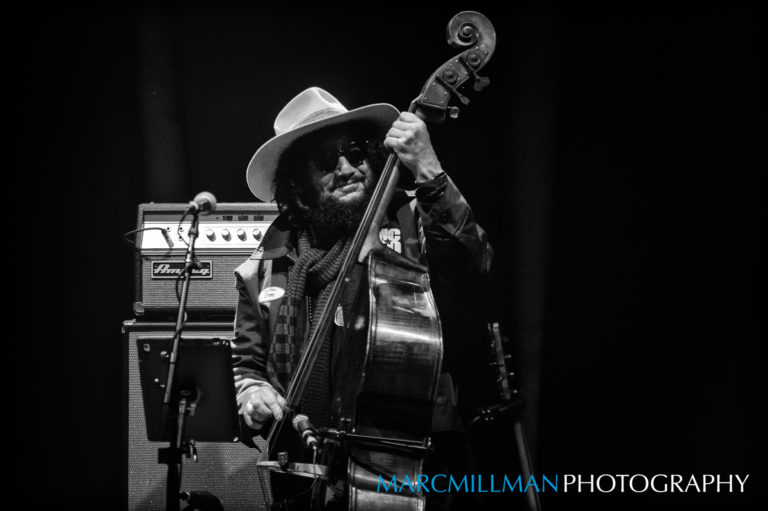Don Was on the Power of Live

In this moment of social distancing and turmoil, many of us are yearning for the collective inspiration and joy that is unique to the concert experience. In a special Power of Live section that appears in our new issue, a number of singular voices chime in with their thoughts on the importance of in-person gatherings.
You can look back at previous Power of Live interviews with Trey Anastasio, Jon Batiste, Mickey Hart, Warren Haynes, Jason Isbell, Robert Mercurio, Bonnie Raitt and Carlos Santana.
**
Don Was is not only the president of Blue Note Records and a famed record producer, but he’s also a go-to bass player, most recently alongside Bob Weir and Jay Lane in Wolf Bros. Here, he shares some insight into the dynamic nature of the live experience.
Overall, I think live music has to do with human evolution and it predates any genre of music that we know about today. There are a couple ways of looking at it. One is in a scientific way and the other is a little more mystical. In scientific terms, there’s a body of work that establishes how live music creates social bonding and a wave of synchronicity. There’s a lot of research that indicates we experience greater enjoyment in the presence of live music and by being part of a larger group. A lot of it just has to do with dancing, which is why it transcends genres. That’s true of head movement in particular, but I think any body movement encodes emotional information and, when you experience that with others, there are social consequences. You establish a rapport, a sense of community—people like each other more, they trust each other more, they cooperate more.
With head movement, there’s some research to indicate that it’s impacted by the low end, so bass becomes critical. That’s something I’ve been aware of and that has impacted my style of playing. It’s better to keep it simple and to keep a pulse going because you can see it. Bigger movement equals more engagement, and when the audience becomes engaged, things start to elevate and the pleasure neurotransmitters start firing.
There’s something about the presence of the performer in the room that makes a big difference. It’s not just the sense of another person, which is a real thing. It’s a sense that the audience has the ability to influence the performance. Playing with Weir has turned me onto a whole new way of looking at playing music for people because the audience becomes involved. They’re more in tune to the connection, and the oneness, that exists between the band and every individual member of the audience, creating one whole.
Previously, the greatest moment of engagement I’ve ever experienced musically was doing “Brick House” with Lionel Richie live because people just went crazy. There’s something about that song. But from the first set with Wolf Bros., I could feel it. I could really feel the audience and, just speaking as a musician, you get totally swept away in that connection. It’s one whole unit. When the band soars, the audience soars and, when the audience soars, the band soars. And during the best moments—which I think we have two or three of every night—the whole thing connects and the entire theater elevates. Everyone gets swept away, and I see it as a spiraling tornado. It’s not violent; it just pulls everything up. It’s a combination of religious revelation and the best ride at Six Flags.
I don’t think it has to do with any genre of music or any particular instrument; it has to do with people moving and grooving in the same space. When you experience it, you know it. It’s a combination of connection, emotional engagement, extreme presence in the moment and extreme pleasure. You’ve got all these things firing at once, and then some things which transcend neuroscience.




















